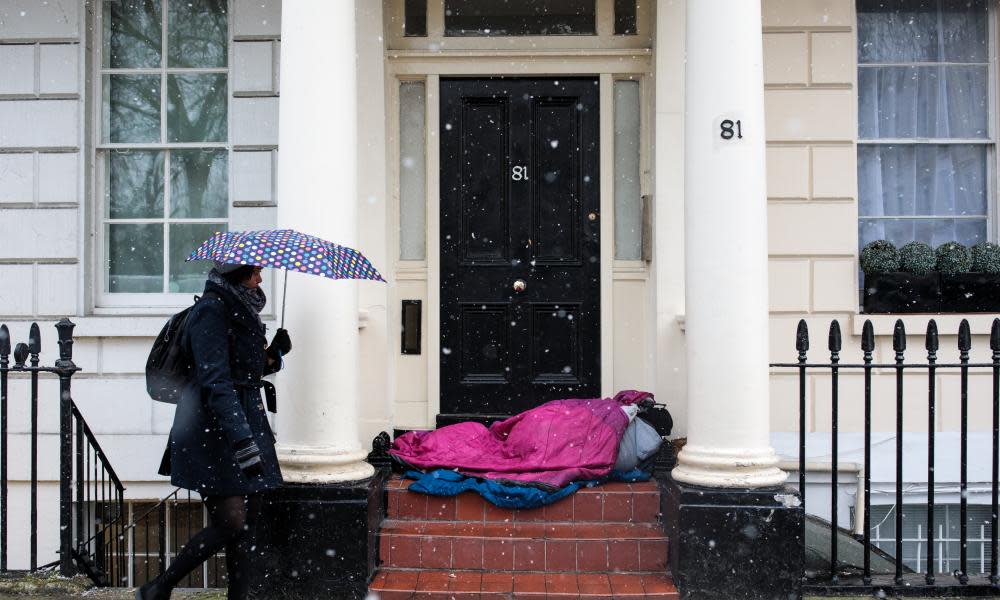Even social housing is unaffordable now in some parts of England

The government’s squeeze on poorer households means that now, shockingly, even social housing is unaffordable for some households on benefits.
Our annual Homelessness Monitor report, published on 12 April by Crisis and the Joseph Rowntree Foundation, finds that councils across the country support the aims of the Homelessness Reduction Act 2017, but face mounting pressures as they grapple with their new duties. The act, which came into force in England on 3 April, is the most radical new legislation on homelessness for 40 years. For the first time, single homeless people have clear entitlement to help from local authorities to prevent and relieve their homelessness.
The long-term effects of right to buy and inadequate new supply mean social lettings are at historically low levels
Official statistics indicate that statutory homelessness has reached a plateau at a level almost 50% higher than when the coalition government came to power, but two-thirds (67%) of councils report that in fact the numbers seeking help from their homelessness services has continued to rise. Our report shows that almost all local authorities (93%) think the full roll-out of universal credit will make homelessness even worse in their area over the next couple of years.
Growing pressure on temporary accommodation, and a sharp rise in B&B placements in particular (up by 250% since 2009), reflect a dramatic shrinkage in the settled housing options available to local councils. As one expert told us, the real problem is “the supply side has fallen off a cliff”. So councils are just not able to move homeless households on.
Rising rents coupled with frozen local housing allowance rates mean private tenancies are simply out of reach for low-income households in many parts of the country. An overwhelming majority of English councils (89%) report difficulties assisting homeless applicants into the private rented sector, with many saying that this is now almost impossible.
At the same time, 70% of local authorities and 93% of London boroughs struggle to secure social tenancies for homeless households. This is hardly surprising: the long-term effects of right to buy and inadequate new supply mean social sector lettings are running at historically low levels, and fell sharply, by 11%, just in the last year. Benefit caps and freezes have now bitten so deep that even properties let at social rent levels can be unaffordable to claimant households.
The government has faced official criticism, from the National Audit Agency and MPs, respectively, about its “light touch” and “unacceptably complacent” approach to homelessness. This hands-off approach is a direct consequence of the policies introduced by the coalition government in 2011.
Theresa May’s government now has the chance to rectify this by showing the national leadership required to give local authorities the means to deliver the Homelessness Reduction Act.
Recent reversals of planned further cuts to housing allowances for social tenants and for those aged under 22 provide hopeful signs of willingness to step up to this challenge, and the forthcoming social housing green paper presents a key opportunity to deliver a major change in the supply of social homes.
If the government were also to lift the local housing allowance freeze, making private tenancies again a realistic option for those on the lowest incomes, it could begin to address the burning injustice of a homelessness crisis that is the predictable consequence of welfare and housing policies since 2010.
Suzanne Fitzpatrick is a co-author of the 2018 Homelessness Monitor
Join the Housing Network to read more pieces like this, and follow us on Twitter (@guardianhousing) to keep up with the latest UK housing news and views
Looking for a housing job, or need to recruit housing staff? Take a look at Guardian Jobs

 Yahoo News
Yahoo News 
